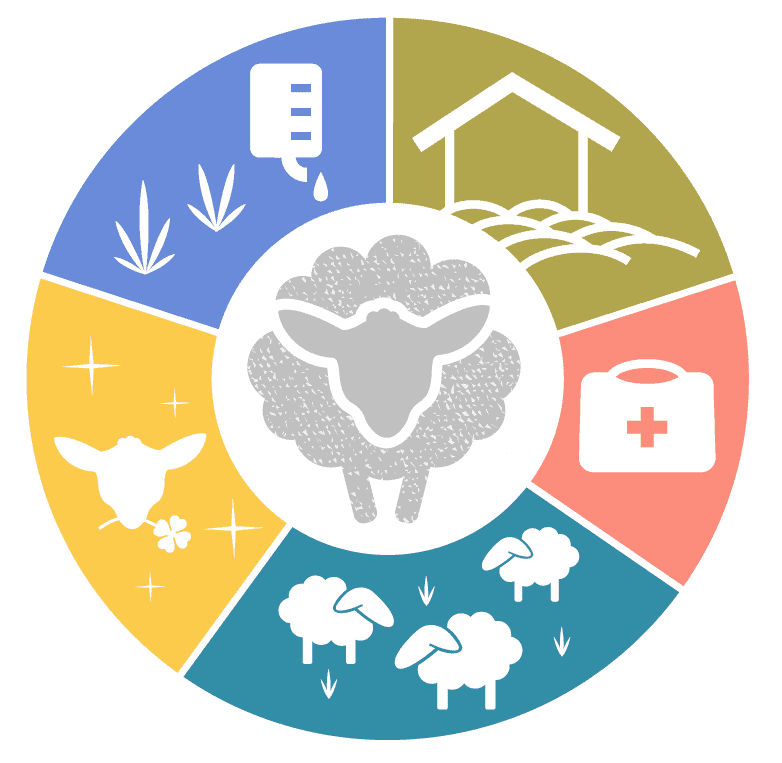Animal Welfare
Natural fibres include materials of animal origin, such as leather, down and wool. Animal welfare and animal protection are crucial factors in the production of sustainable animal fibres. With regard to virgin wool, the Partnership for Sustainable Textiles has identified two key focus areas: compliance with the Five Freedoms and the renunciation of mulesing.
The Five Freedoms
The Farm Animal Welfare Council (FAWC) published the "Five Freedoms", an internationally accepted basis for animal welfare in agriculture. The Five Freedoms identify negative conditions from which animals must be protected:

- Freedom from hunger, thirst and malnutrition:Animals have free access to water and receive a diet appropriate to their species to ensure health and vitality.
- Freedom from discomfort: Animals are kept in an animal-friendly environment that provides rest, exercise and protection from predators.
- Freedom from pain, injury and disease: Prevention or swift diagnosis of health problems. The health of the animals must be ensured to the best possible extent in the breeding and handling of the animals.
- Freedom to express normal behaviour: Keepers provide sufficient space and species-appropriate facilities and keep the animals together with conspecifics.
- 5. Freedom from fear and distress: Animals are kept and handled in a way that avoids psychological suffering. This principle is also observed during transport and slaughter.
Mulesing
Animal welfare risks exist in sheep farming particularly in the form of "mulesing". Mulesing is a surgical procedure to combat the frequent infestation of blowflies in wool sheep. Skin is removed from the buttocks of the animals, which causes scarring of the tissue and makes it more difficult for the insects to attack again. Often the animals are not given anaesthesia or painkillers, so the procedure is painful and poses further health risks, such as infection of the open skin areas.
What are alternatives to mulesing? To prevent fly infestation, sheep farmers can regularly remove the wool between the tail and hind legs of the animals and check them for fly infestation. This requires more effort but respects the principles of animal welfare and does not cause injury or pain to the sheep. In the long term, it would also be possible to selectively breed sheep that have fewer excess skin folds and are thus less susceptible to insect infestation.
The Partnership for Sustainable Textiles strongly opposes mulesing. It requires all members who use virgin wool to have a policy on sourcing responsibly produced virgin wool. The Textile Partnership considers virgin wool to be sustainable if the farmers adhere to the Five Freedoms and refrain from mulesing their animals (status: "non-mulesed" or "ceased mulesing").
Animal welfare is one of the eleven sector risks that the Partnership companies examine in the review process. Review Process Based on this, companies define targets and measures to address their most serious risks.
Further information and tools:
- FOUR PAWS / AGT: Online Trainings: Sheep Welfare in Wool Production (2020).
- FOUR PAWS: Transitioning away from mulesed sheep wool (2021).
- International Wool Textile Organisation: IWTO Specifications for Wool Sheep Welfare (2020).
- Siegelklarheit: Lederprodukte only available in german.
- Siegelklarheit: Textiles.
- Textile Exchange: Responsible Wool Standard.


